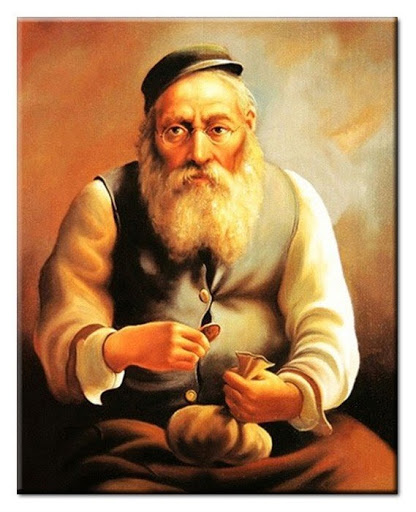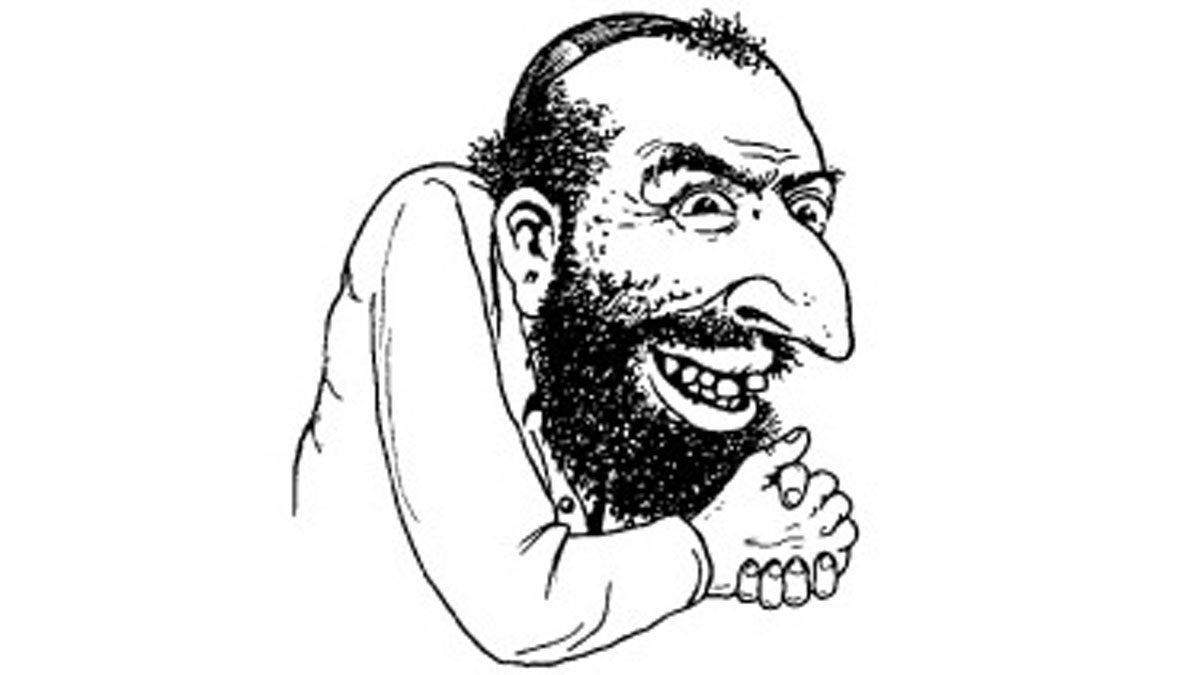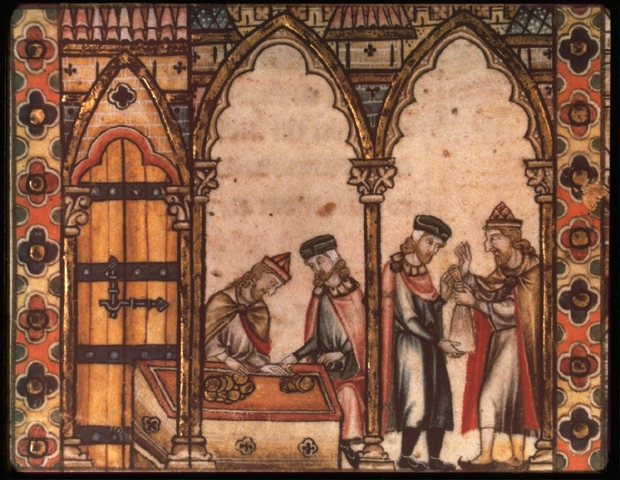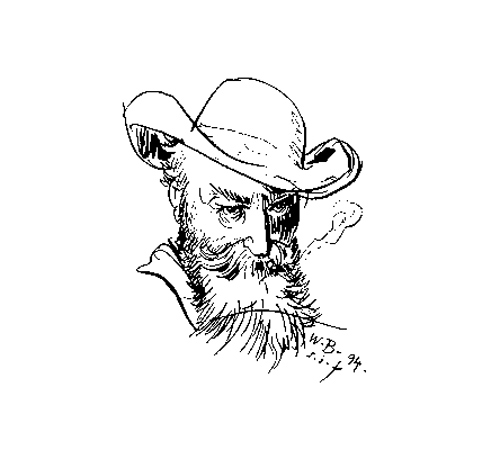“The Lucky Jew”

A rhyming “poem” in Polish [translation without rhymes] “In order to have money at home and never run out of it, you need to have a Jew at home who will guard the money.” “When in poverty, go to the Jew.” The aforementioned examples corroborate the popular belief that a statue or a painting depicting a Jew with a coin brings financial success. Although the origins of this belief are not entirely clear, one can definitely trace within it the stereotypical characteristic of Jews being wealthy and possessing high business skills.
The “Happy Merchant” Meme

The “Happy Merchant” meme, also known as Jew-bwa-ha-ha.gif is a derogatory caricature of a stereotypical Jewish man using signifiers such as a kippah, long nose, full beard, malicious smile and the rubbing of hands, suggesting nefarious plans, for an antisemitic image. Posted on image boards where politics is discussed, such as 4chan/pol, it is used to spread antisemitic ideas.
The Fight Between Good And Evil

The Turkish Islamist Necmettin Erbakan (1926 – 2011) claims that the Jews (in his words, “Zionists”) started creating a world order more than 5,000 years ago with the help of the Kabbalah to control all money and labor. The Jews organized the crusades, and because the Catholic church was against money lending, the Jews created Protestantism so as to be able to make everybody work for them by introducing capitalism. That’s how the Jews control the world, apart from Islam, and that’s the fight between good and evil, the struggle between them and Islam.
Greed, Money-lending and Usuary

Since the 12th century, religious myths (Jews as deicides) have been complemented with economic stereotypes. Jews were described as rich and rampant as well as “money-lenders”, “bargainers” and “usurers” – a view still commonplace today. Excluded from land ownership, agriculture, and the Christian merchants’ and handicrafts guilds, Jews were increasingly limited to the small trade, peddler and junk trade. The money trading with interest played a special role, which according to church dogmatics violated divine doctrine and remained forbidden to Christians.
The Poet’s Scapegoat

“And the Hebrew, sly and craven, Round of shoulder, nose, and knee, Slinks to the Exchange, unshaven And intent on usury” – Wilhelm Busch (1872). This English translation of a verse in Wilhelm Busch’s “Helen Who Couldn’t Help It” reflects a common trope in German antisemitism: the Geldjude, or the equation of Jews with money and usury, greed and parasitic financial capitalism. In his work Busch puts this opinion in the context of the worldview of a pious uncle who wants to save his niece from the depravity of the big city.

